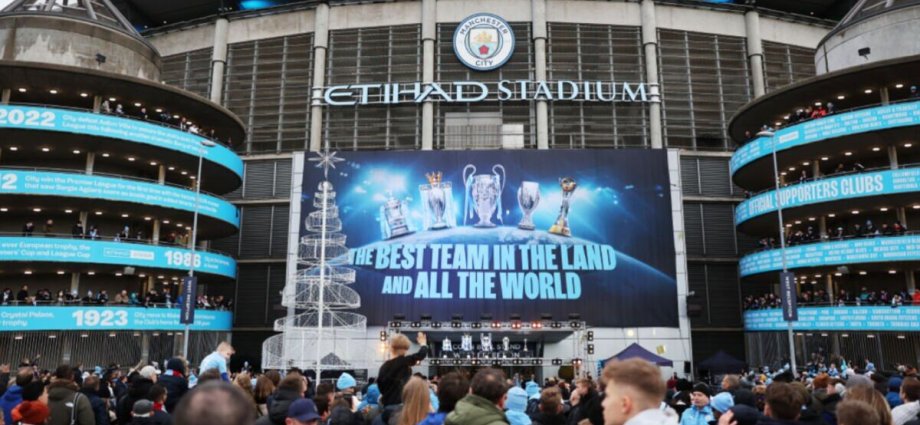The three witnesses who spoke in support of Manchester City in their legal case with the Premier League have been revealed, as several of their fellow teams joined in rules relating to commercial deals between clubs and related companies.
Aspects of the league’s Associated Party Transaction (APT) rules were deemed unlawful by a tribunal after City had two major sponsorship deals blocked due to the change in regulations, which were put in place following Newcastle‘s takeover by the Saudi Arabian Public Investment Fund.
This case is not directly related to the Premier League disciplinary hearing, which will hear 115 charges against City for allegedly breaching its financial regulations.
But after the reigning champions had reportedly seen a major renewal of the deal with UAE-based airline Etihad blocked, in addition to another deal with a bank in Abu Dhabi, some of City’s complaints were upheld. The ruling is thought to have significant ramifications for the division, which has garnered clubs’ attention as their voices were heard at the tribunal.
During the arbitration process, Chelsea, Newcastle and Everton all acted as witnesses for City. Witnesses for the Premier League included Manchester United, Liverpool, Arsenal, Tottenham, Brighton and West Ham.
The league has said that it will look to change the two items that the tribunal ruled against them on, integrating the tribunal’s assessment of shareholder loans, while clubs with high levels of borrowing are now thought to be more likely to fall foul of Financial Fair Play rules.
A statement released by the Premier League champions read: “The Premier League welcomes the tribunal’s findings, which endorsed the overall objectives, framework and decision-making of the APT system. The tribunal upheld the need for the APT system as a whole and rejected the majority of Manchester City’s challenges. Moreover, the tribunal found that the Rules are necessary in order for the league’s financial controls to be effective.
“The decision represents an important and detailed assessment of the APT Rules, which ensure clubs are not able to benefit from commercial deals or reductions in costs that are not at Fair Market Value (FMV) by virtue of relationships with Associated Parties. These rules were introduced to provide a robust mechanism to safeguard the financial stability, integrity and competitive balance of the league.
“The tribunal did, however, identify a small number of discrete elements of the rules which do not, in their current form, comply with competition and public law requirements. These elements can quickly and effectively be remedied by the league and clubs.”
City issued their own statement, similarly claiming victory, focusing on the two areas they won as the club claimed the “Premier League was found to have abused its dominant position”.
Their statement read: “The club has succeeded with its claim: the Associated Party Transaction (APT) rules have been found to be unlawful and the Premier League’s decisions on two specific MCFC sponsorship transactions have been set aside.
“The tribunal found that both the original APT rules and the current, (amended) APT Rules violate UK competition law and violate the requirements of procedural fairness. The Premier League was found to have abused its dominant position.
“The tribunal has determined both that the rules are structurally unfair and that the Premier League was specifically unfair in how it applied those rules to the club in practice. The rules were found to be discriminatory in how they operate, because they deliberately excluded shareholder loans.”










